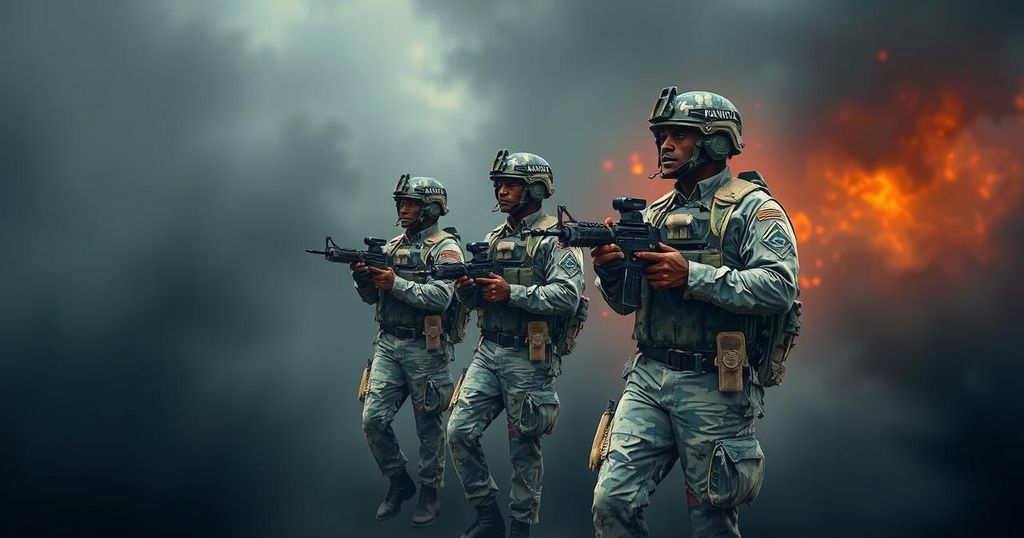Mozambique Faces Unrest as Military Deployed Amid Post-Election Protests
Mozambique is facing significant unrest after the recent election results have sparked protests against the ruling Frelimo party. The deployment of military forces aims to quell the demonstrations, which are fueled by allegations of electoral fraud. The region’s political stability is at stake as the situation continues to develop.
Mozambique is experiencing heightened tensions following the deployment of soldiers to restore order amid widespread protests against the ruling Frelimo party. Citizens have taken to the streets in Maputo, expressing their dissatisfaction with the results of the recent elections, held on October 9, 2024. The ruling party’s candidate, Daniel Chapo, was declared the winner, extending Frelimo’s nearly five-decade grip on power. However, opposition parties allege electoral fraud, including ballot stuffing, and international observers have reported significant irregularities which cast doubt on the election’s legitimacy. In response to the upheaval, officials from the armed forces affirmed their support for police actions to maintain peace, as security forces confront aggressive demonstrations and have reportedly employed tear gas and rubber bullets against protesters. Unrest has been exacerbated by the tragic deaths of senior opposition figures due to violent assaults, further inflaming public outrage against the government. Authorities claim the military’s presence is necessary for public safety, as protests have led to incidents of violence, including numerous fatalities. The Southern African Development Community (SADC) has indicated forthcoming discussions regarding the situation, underscoring the regional implications of Mozambique’s internal strife.
Mozambique has a history of political unrest, particularly following elections. The Frelimo party, which has ruled since the country gained independence from Portugal in 1975, faces persistent accusations of electoral malpractice. The recent 2024 elections saw the ruling party declared the winner, but widespread allegations of rigging and manipulation have prompted immediate backlash from opposition groups and the public. The Constitutional Council has yet to validate the results, adding uncertainty to the political landscape. This ongoing conflict threatens to destabilize not only Mozambique but also its neighbors, calling for regional intervention from organizations like the Southern African Development Community.
In conclusion, the protests arising from the disputed election results in Mozambique have prompted significant governmental action, including the deployment of military forces to restore order. The atmosphere remains volatile as public sentiment remains against the ruling party, whose legitimacy is questioned due to allegations of electoral fraud and recent violence against opposition figures. The situation necessitates careful monitoring as regional bodies prepare to intervene and potentially address the crisis.
Original Source: apnews.com




Post Comment